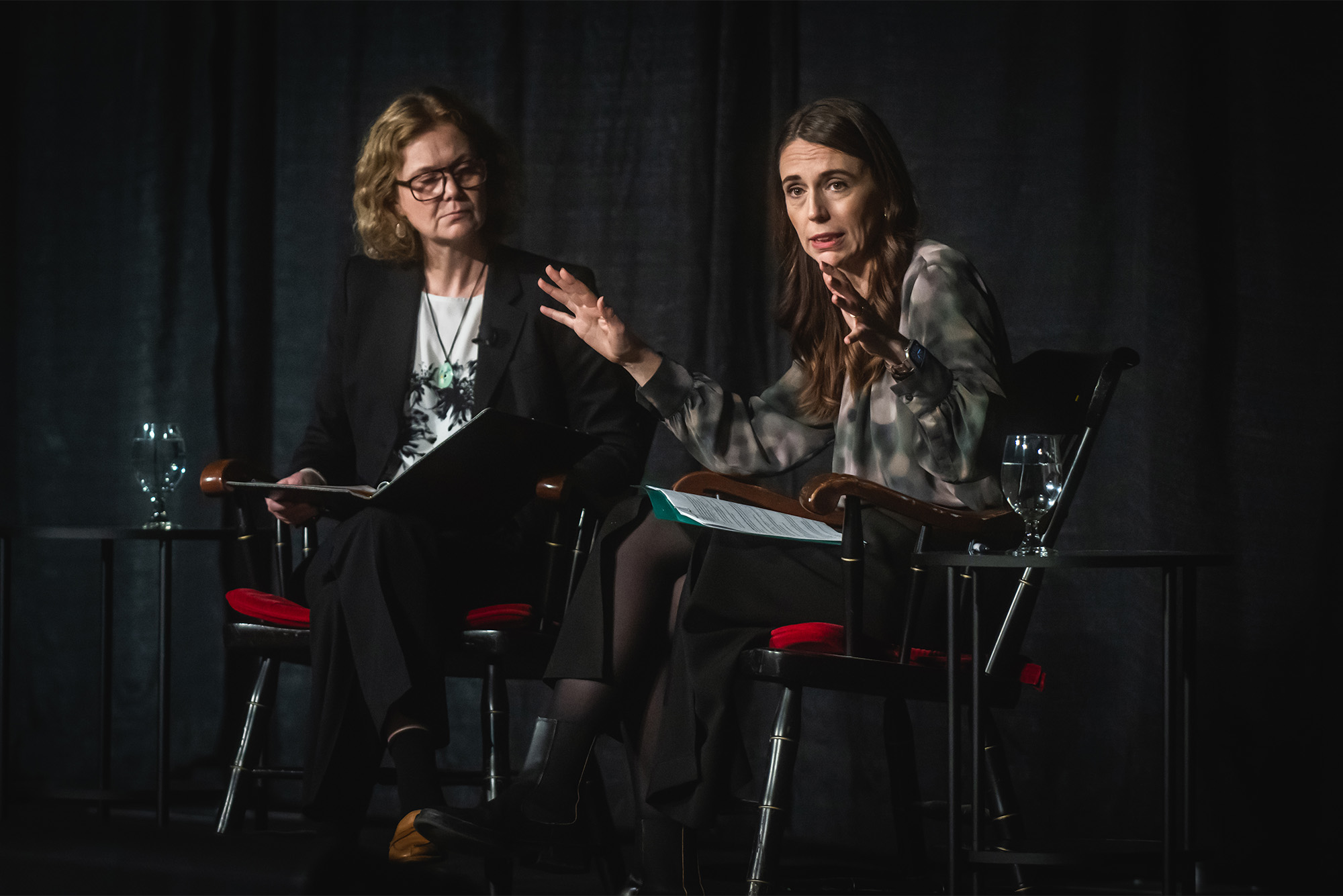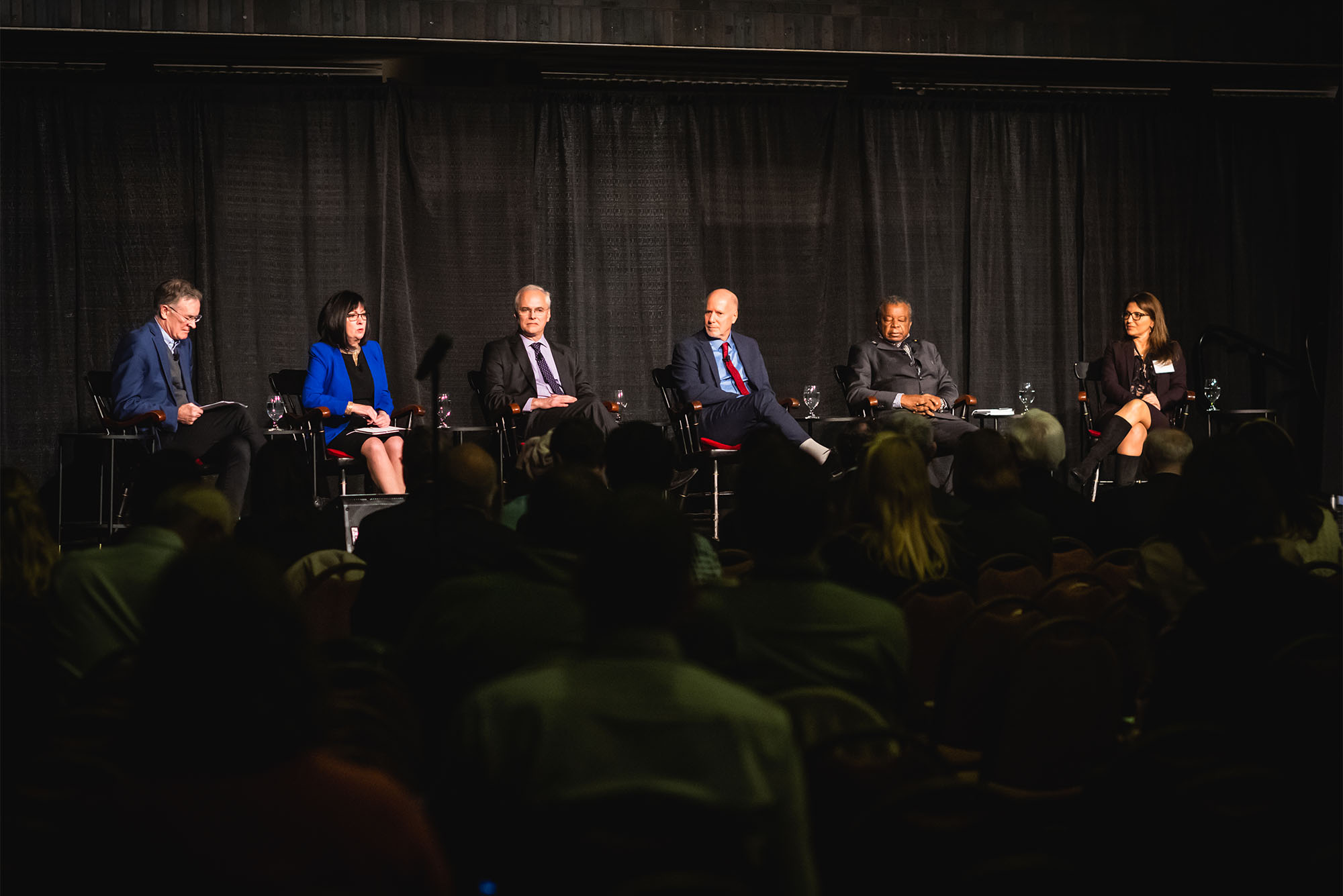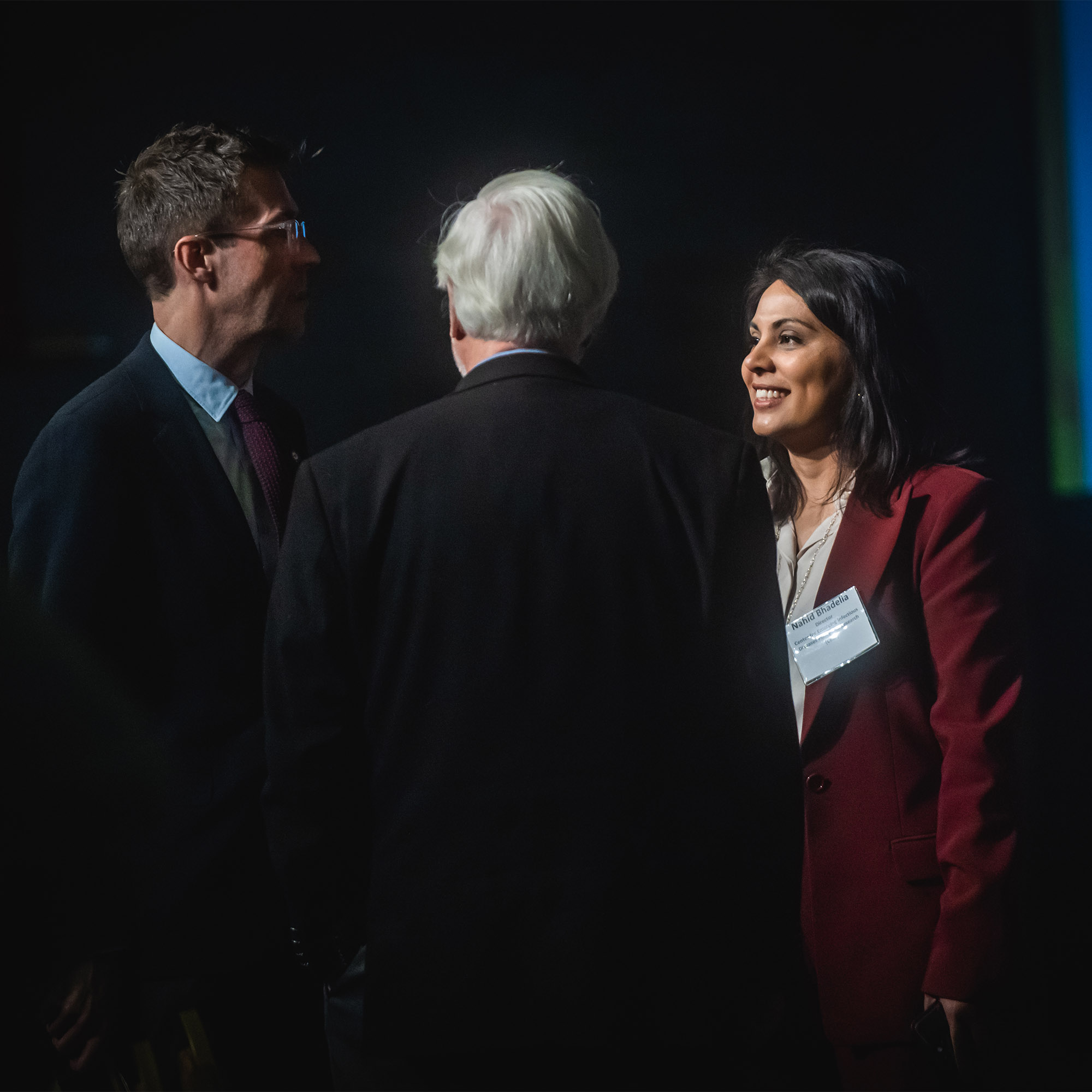Preventing the Next Pandemic

Moderator Louise Ivers (left), director of Harvard Global Health Institute, and Dame Jacinda Ardern, former prime minister of New Zealand, at the MassCPR Symposium: Pandemic Preparedness at the George Sherman Union on November 14, 2023.
Preventing the Next Pandemic
New Zealand’s former prime minister Dame Jacinda Ardern joins the world’s leading infectious disease scientists and experts at BU to discuss how to prepare for future outbreaks
Just hearing the words “the next pandemic” is enough to send shivers down your spine, calling to mind the chilling prospect of reliving the not-too-distant past of COVID-19 lockdowns, social isolation, sickness, uncertainty, fear, and loss. That’s exactly why this year’s Massachusetts Consortium on Pathogen Readiness (MassCPR) Symposium, titled Pandemic Preparedness: A Global Framework, convened some of the world’s brightest minds to help prepare for the next pandemic—before it’s too late. The event was held Tuesday at Boston University’s George Sherman Union.
“Next to climate change, I can’t think of a more important task,” Kenneth W. Freeman, BU’s president ad interim, said in his opening remarks.
Leaders from the world’s foremost health organizations and research institutions, as well as politicians and policymakers—notably, the former prime minister of New Zealand, Dame Jacinda Ardern—reflected on how governments responded to COVID-19, the need to strengthen healthcare systems to quickly identify diseases before they spread, and the most important action items for virologists, epidemiologists, researchers, doctors, and others to focus on next.
“We need to do a better job in between crises to build public trust, so we can be prepared when [a] crisis hits,” Ardern said during the keynote panel, where she was joined by two scientists who helped create New Zealand’s pandemic strategy, Sir Ashley Bloomfield and Dame Juliet Gerrard, both University of Auckland professors.
While Ardern was in office, she led New Zealand’s COVID-19 response, considered to be one of the most effective and successful in the world, adopting a zero-tolerance approach to the virus with nationwide lockdowns and strict border controls. About 3,250 New Zealanders in a population of 5 million have died due to COVID-19, as of August 2023—about one-fifth of the mortality rate in the United States. On the panel, the trio shared their insights on decision-making during times of crisis, the need for public leaders to be transparent about information they share, and setting realistic expectations about how information might evolve as experts learn more.
“The idea for this symposium is to have concrete actionable items now,” Nancy Sullivan, symposium chair and director of BU’s National Emerging Infectious Diseases Laboratories (NEIDL), told The Brink. She led the event with symposium co-chair Richard Hatchett, CEO of the Coalition for Epidemic Preparedness Innovations (CEPI). The MassCPR was launched by Harvard Medical School in March 2020 in response to the COVID-19 pandemic; the symposium was sponsored by Boston University, Harvard Medical School, and the Maxwell Finland Fund.
“Climate change, deforestation, world travel—there are lots of factors like these that make it almost a certainty that there will be another pathogen that causes disruption, and we want to have the tools in place,” said Sullivan, who is also the Edward Avedisian Professor of biology, and a BU Chobanian & Avedisian School of Medicine professor of virology, immunology, and microbiology.

Sullivan moderated the second panel of the day with Bruce Walker, director of the Ragon Institute of Mass General, MIT, and Harvard, about the importance of creating infrastructure to detect, diagnose, and treat emerging pathogens that could pose a global public health threat, and how to ensure vaccines and therapeutics are equitably distributed.
“The world is more prepared after COVID, but are we prepared in a way that will prevent a pandemic? No,” Sullivan told The Brink. In March 2022, international experts met at the Global Pandemic Preparedness Summit in London, England, agreeing to a 100 Days Mission to make safe, effective vaccines, therapeutics, and diagnostics within 100 days of identifying an unknown pathogen. “Are we preparing in ways that will get us closer to the 100 Days Mission?” Sullivan said. “Yes, but there’s work to do.”
Before coming to BU, Sullivan’s longtime focus was the fight against Ebola. She worked closely for many years with one of the MassCPR panelists, Jean-Jacques Muyembe-Tamfum, director general of the Democratic Republic of the Congo’s National Institute of Biomedical Research. He helped discover the Ebola virus in 1976 and is the coinventor of the monoclonal antibody Ebola treatment that was approved by the FDA in December 2020.
“I think that the next pandemic will emerge from Africa,” Muyembe-Tamfum said during the panel. The COVID pandemic demonstrated vast global inequities—just 24.9 percent of the African continent was vaccinated for COVID as of December 2022. According to the Brookings Institution, Africa only received 6 percent of all COVID vaccines, despite having 17 percent of the world’s population.
“We are here to learn, to expose what we are doing, and to put it together to be prepared for the next pandemic,” Muyembe-Tamfum told The Brink in French after the panel, with Sabue Mulangu, a scientist at Ridgeback Biotherapeutics who helped develop the Ebola treatment, translating his words to English.
The final panel addressed one of the most important parts of pandemic preparedness: trust and communication.
“Trust is not something that’s given, it is something that’s earned,” said panelist Nahid Bhadelia, founding director of BU’s Center for Emerging Infectious Diseases Policy & Research (CEID). She compared pandemic responses to how communities respond to fires: it’s not just the fire department that prevents fires, it starts with building codes, manufacturing regulations, and measures that collectively lower the risk of a fire.

“Why are we only thinking about the response part, when so much is baked into the system beforehand?” added Bhadelia, a BU Chobanian & Avedisian School of Medicine associate professor of infectious diseases. She pointed out that across the globe, over 50 percent of people don’t have access to preventive care, a major problem when it comes to human health and halting disease spread.
Bhadelia was joined on an impressively experienced panel by Emilio Emini, CEO of the Bill & Melinda Gates Medical Research Institute; Robert Goldstein, commissioner of the Massachusetts Department of Public Health; Hilary Marston, the FDA’s chief medical officer; Raj Panjabi, a former White House National Security Council member; and Agnes Binagwaho, a former Rwandan health minister and vice chancellor of the University of Global Health Equity. They talked about the importance of disseminating information through channels and organizations in communities that people already go to and trust, like local health centers, churches, and barber shops—a strategy they said has been proven to work.
“The processes and systems that are important to deal with the next pandemic are not unique to whatever the next pathogen may be—they are processes and systems that are important in a wide range of public health problems,” Gloria Waters, BU’s vice president and associate provost for research, told The Brink after the event. “One way to prepare for the next pandemic is to try to perfect those systems and processes, while at the same time, working on other existing public health problems.”


Comments & Discussion
Boston University moderates comments to facilitate an informed, substantive, civil conversation. Abusive, profane, self-promotional, misleading, incoherent or off-topic comments will be rejected. Moderators are staffed during regular business hours (EST) and can only accept comments written in English. Statistics or facts must include a citation or a link to the citation.